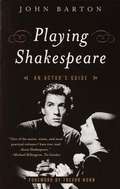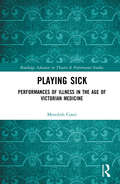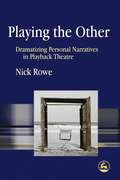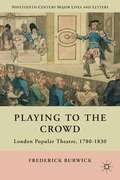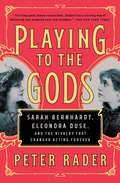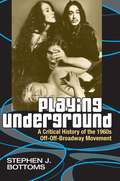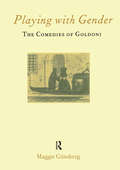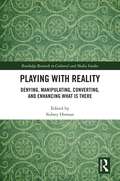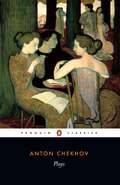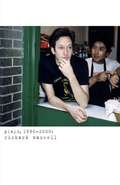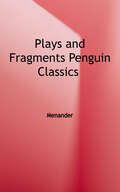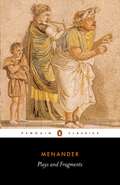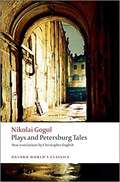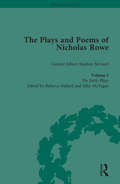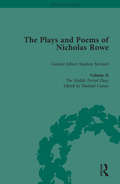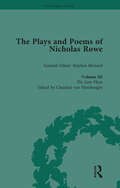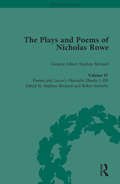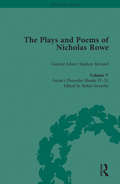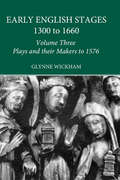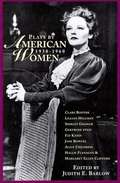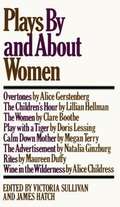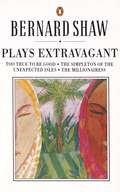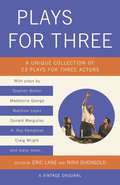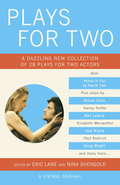- Table View
- List View
Playing Shakespeare: An Actor's Guide
by John Barton Trevor NunnNow in its first American edition,Playing Shakespeare is the premier guide to understanding and appreciating the mastery of the world's greatest playwright. Together with Royal Shakespeare Company actors-among them Patrick Stewart, Judi Dench, Ian McKellen, Ben Kingsley, and David Suchet-John Barton demonstrates how to adapt Elizabethan theater for the modern stage. The director begins by explicating Shakespeare's verse and prose, speeches and soliloquies, and naturalistic and heightened language to discover the essence of his characters. In the second section, Barton and the actors explore nuance in Shakespearean theater, from evoking irony and ambiguity and striking the delicate balance of passion and profound intellectual thought, to finding new approaches to playing Shakespeare's most controversial creation, Shylock, from The Merchant of Venice. A practical and essential guide,Playing Shakespeare will stand for years as the authoritative favorite among actors, scholars, teachers, and students.
Playing Sick: Performances of Illness in the Age of Victorian Medicine (Routledge Advances in Theatre & Performance Studies)
by Meredith ContiFew life occurrences shaped individual and collective identities within Victorian-era society as critically as witnessing or suffering from illness. The prevalence of illness narratives within late nineteenth-century popular culture was made manifest on the period’s British and American stages, where theatrical embodiments of illness were indisputable staples of actors’ repertoires. Playing Sick: Performances of Illness in the Age of Victorian Medicine reconstructs how actors embodied three of the era’s most provocative illnesses: tuberculosis, drug addiction, and mental illness. In placing performances of illness within wider medicocultural contexts, Meredith Conti analyzes how such depictions confirmed or resisted salient constructions of diseases and the diseased. Conti’s case studies, which range from Eleonora Duse’s portrayal of the consumptive courtesan Marguerite Gautier to Henry Irving’s performance of senile dementia in King Lear, help to illuminate the interdependence of medical science and theatre in constructing nineteenth-century illness narratives. Through reconstructing these performances, Conti isolates from the period’s acting practices a lexicon of embodied illness: a flexible set of physical and vocal techniques that performers employed to theatricalize the sick body. In an age when medical science encouraged a gradual decentering of the patient from their own diagnosis and treatment, late nineteenth-century performances of illness symbolically restored the sick to positions of visibility and consequence.
Playing the Other: Dramatizing Personal Narratives in Playback Theatre
by Nick RoweThis book is an exploration and critique of 'playback theatre', a form of improvised theatre in which a company of performers spontaneously enact autobiographical stories told to them by members of the audience. With more than ten years' experience as an actor with Playback Theatre York, the author introduces the reader to the basics of playback theatre within a historical and theoretical context. The history and development of the form is traced, from its conception in the late 1970s to its subsequent growth worldwide, and its relationship to the psychodrama tradition from which it has evolved is discussed. Through an examination of playback performances from the perspectives of performers, `tellers' of their stories and the audience, the author critically explores the nature, implications and ethics of the performers' response to the teller's experience, how notions of the public and personal are constructed, and the risks involved in improvising a response to a member of the audience's story. Playing the Other will be essential reading for drama students, dramatherapists and all those interested in the history and use of the theatre.
Playing to the Crowd
by Frederick BurwickThe firststudy ofthe productions of the minor theatres, how theywere adapted toappealto the local patrons and the audienceswho worked and lived inthese communities. "
Playing to the Gods: Sarah Bernhardt, Eleonora Duse, and the Rivalry that Changed Acting Forever
by Peter RaderThe riveting story of the rivalry between the two most renowned actresses of the nineteenth century: legendary Sarah Bernhardt, whose eccentricity on and off the stage made her the original diva, and mystical Eleonora Duse, who broke all the rules to popularize the natural style of acting we celebrate today.Audiences across Europe and the Americas clamored to see the divine Sarah Bernhardt swoon—and she gave them their money’s worth. The world’s first superstar, she traveled with a chimpanzee named Darwin and a pet alligator that drank champagne, shamelessly supplementing her income by endorsing everything from aperitifs to beef bouillon, and spreading rumors that she slept in a coffin to better understand the macabre heroines she played. Eleonora Duse shied away from the spotlight. Born to a penniless family of itinerant troubadours, she disappeared into the characters she portrayed—channeling their spirits, she claimed. Her new, empathetic style of acting revolutionized the theater—and earned her the ire of Sarah Bernhardt in what would become the most tumultuous theatrical showdown of the nineteenth century. Bernhardt and Duse seduced each other’s lovers, stole one another’s favorite playwrights, and took to the world’s stages to outperform their rival in her most iconic roles. A scandalous, enormously entertaining history full of high drama and low blows, Playing to the Gods is the page-turning account of the feud that changed theater forever.
Playing Underground
by Stephen J. Bottoms"Scrupulously researched, critically acute, and written with care,Playing Undergroundwill become a classic account of an era of hard-won free expression. " -William Coco "At last---a book documenting the beginnings of Off-Off Broadway theater. Playing Undergroundis an insightful, illuminating, and honest appraisal of this important period in American theater. " -Rosalyn Drexler, author ofArt Does (Not!) ExistandOccupational Hazard "An epic movie of an epic movement,Playing Undergroundis a book the world has waited for without knowing it. How precisely it captures the evolution of our revolution! I am amazed by the book's scope and scale, and I bless its author especially for giving two greats, Paul Foster and H. M. Koutoukas, their proper, polar places, and for memorializing such unjustly forgotten masterpieces as Irene Fornes'sMolly's Dreamand Jeff Weiss'sA Funny Walk Home. Stephen Bottoms's vivid evocation of the grand adventure of Off-Off Broadway has woken and broken my heart. It is difficult to believe that he was not there alongside me to breathe the caffeine-nicotine-alkaloid-steeped air. " -Robert Patrick, author ofKennedy's ChildrenandTemple Slave Few books address the legendary age of 1960s off-off Broadway theater. Fortunately, Stephen Bottoms fills that gap withPlaying Underground---the first comprehensive history of the roots of off-off Broadway. This is a theater whose legacy is still felt today: it was the launching pad for many leading contemporary theater artists, including Sam Shepard, Maria Irene Fornes, and others, and it was a pivotal influence on improv comedy and shows likeSaturday Night Live. Off-off Broadway groups such as the Living Theatre, La Mama, and Caffe Cino captured the spirit of nontraditional theater with their edgy, unscripted, boundary-crossing subjects. Yet, as Bottoms discovers, there is no one set of truths about off-off Broadway to uncover; the entire scene was always more a matter of competing perceptions than a singular, concrete reality. No other author has managed to illuminate this shifting tableau as Bottoms does. Through interviews with dozens of the era's leading playwrights, performers, directors, and critics, he unearths a countercultural theater movement that was both influential and transforming-yet ephemeral and quintessentially of its moment. Playing Undergroundwill be a definitive work on the subject, offering a complete picture of an important but little-studied period in American theater.
Playing with Gender: The Comedies of Goldoni
by Maggie Gunsberg"This work takes gender as its point of entry into the comedies of Carlo Goldoni (1707-93). The dramatization of femininity and masculinity is explored in conjunction with that of other social categories (class, the family, and age). The plays reinforce the patriarchal association of femininity with the body, with spectacle, and with theatricality, while the dramatic backdrop of Venice and carnival provides a context for the staging of issues relating to identity, disguise and fashion. In the plays, pretence and theatricality vie with bourgeois Enlightenment values of morality, honesty and respectability to produce dramatic tension with distinct gender implications."
Playing with Reality: Denying, Manipulating, Converting, and Enhancing What Is There (Routledge Research in Cultural and Media Studies)
by Sidney HomanThis volume explores how and why we deny, or manipulate, or convert, or enhance reality. Finding it important to come to terms with reality, with what is there before us, and, with reality however defined, to live responsibly, this collection takes a truly multidisciplinary approach to examining the idea that history, the truth, facts, and the events of the present time can be refashioned as prismatic, theatrical, something we can play with for agendas either noble or ignoble. An international team of contributors considers the issue of how and why, in dealing what is there before us, we play with reality by employing theatre, fiction, words, conspiracy theories, alternate realities, scenarios, and art itself. Chapters delve into issues of fake news, propaganda, virtual reality, theatre as real life, reality TV, and positive ways of refashioning and enhancing your own reality. Drawing on examples from film studies to sociology, from the social sciences to medicine, this volume will appeal to scholars and upper-level students in the areas of communication and media studies, comparative literature, film studies, economics, English, international affairs, journalism, philosophy, psychology, sociology, and theatre.
Plays: The Seagull [and] The Cherry Orchard
by Anton ChekhovAt a time when the Russian theatre was dominated by formulaic melodramas and farces, Chekhov created a new sort of drama that laid bare the everyday lives, loves and yearnings of ordinary people. Ivanov depicts a man stifled by inactivity and lost idealism, and The Seagull contrasts a young man's selfish romanticism with the stoicism of a woman cruelly abandoned by her lover. With 'the scenes from country life' of Uncle Vanya, his first fully mature play, Chekhov developed his own unique dramatic world, neither tragedy nor comedy. In Three Sisters the Prozorov sisters endlessly dream of going to Moscow to escape the monotony of provincial life, while his comedy The Cherry Orchard portrays characters futilely clinging to the past as their land is sold from underneath them.
Plays, 1996-2000 (Maxwell)
by Richard MaxwellThis volume collects for the first time the work of one of America's most important, vital and original young voices. Turning the American family drama firmly on its head, "Maxwell strips more layers of explanation from the Freudian family romance, shining light on the humiliation and fury usually reasoned out of sight by psychologizing playwrights. Few characters in contemporary drama are as exposed as Maxwell's."--Marc Robinson, Village Voice"Imagine if you took a giant hatpin and stuck it into Sylvester Stallone's Rocky. Once all the hot air had leaked out of that melodrama about a working-class underdog who wins fame, fortune and love in the boxing ring, you might find something very much like Richard Maxwell's Boxing 2000. By taking a conventional formula and draining it of all its humid sentimentality and synthetic adrenaline, Mr. Maxwell discovers something new and unexpected. Boxing 2000 is a real knockout: a play that not only challenges theatrical clichés, but your ideas about theatre itself."--Wall Street Journal""It's a sensation that's felt all too rarely these days. Watching Mr. Maxwell's work makes you think of what it must have been like to stumble upon the baffling but seductive creations of a young Sam Shepard in the early 1960's in the East Village."--, New York TimesThis first volume collects nine of Maxwell's early works: Boxing 2000, Caveman, House (1999 OBIE Award winner), Showy Lady Slipper and others.Richard Maxwell is a writer, director and songwriter. He began his acting career with the Steppenwolf Theatre Company in Chicago, where he helped found the Cook County Theater Department, which challenged the principles of traditional acting training. He is artistic director of New York City Players. His plays have been performed in the U.S. at Soho Rep, The Kitchen, P.S. 122, HERE, the Williamstown Theater Festival, Walker Arts Center and the Wexner Center for the Arts; and in Paris, Berlin, Dublin, Brussels, Amsterdam and Vienna.
Plays and Fragments
by MenanderMenander (c. 341-291 BC) was the foremost innovator of Greek New Comedy, a dramatic style that moved away from the fantastical to focus upon the problems of ordinary Athenians. <p><p>This collection contains the full text of 'Old Cantankerous' (Dyskolos), the only surviving complete example of New Comedy, as well as fragments from works including "The Girl from Samos" and "The Rape of the Locks," all of which are concerned with domestic catastrophes, the hazards of love and the trials of family life. <p><p>Written in a poetic style regarded by the ancients as second only to Homer, these polished works—profoundly influential upon both Roman playwrights such as Plautus and Terence, and the wider Western tradition—may be regarded as the first true comedies of manners.
Plays and Fragments
by MenanderMenander (c. 341-291 BC) was the foremost innovator of Greek New Comedy, a dramatic style that moved away from the fantastical to focus upon the problems of ordinary Athenians. This collection contains the full text of 'Old Cantankerous' (Dyskolos), the only surviving complete example of New Comedy, as well as fragments from works including 'The Girl from Samos' and 'The Rape of the Locks', all of which are concerned with domestic catastrophes, the hazards of love and the trials of family life. Written in a poetic style regarded by the ancients as second only to Homer, these polished works - profoundly influential upon both Roman playwrights such as Plautus and Terence, and the wider Western tradition - may be regarded as the first true comedies of manners.
Plays and Petersburg Tales (Oxford World's Classics)
by Nikolai Vasilevich Gogol Christopher English Richard Arthur PeaceThis volume brings together Gogol's Petersburg Tales with his two most famous plays, all of which guide us through the streets of St. Petersburg, the city erected by force and ingenuity on the marshes of the Neva estuary. Something of the deception and violence of the city's creation seems to lurk beneath its harmonious facade, however, and it confounds its inhabitants with false dreams and absurd visions. This new translation by Christopher English brings out the unique vitality and humor of Russia's finest comic writer. <p><p> About the Series: For over 100 years Oxford World's Classics has made available the broadest spectrum of literature from around the globe. Each affordable volume reflects Oxford's commitment to scholarship, providing the most accurate text plus a wealth of other valuable features, including expert introductions by leading authorities, voluminous notes to clarify the text, up-to-date bibliographies for further study, and much more.
The Plays and Poems of Nicholas Rowe, Volume I: The Early Plays (The Pickering Masters)
by Stephen Bernard Rebecca Bullard John McTagueNicholas Rowe was the first Poet Laureate of the Georgian era. A fascinating and important yet largely overlooked figure in eighteenth-century literature, he is the ‘lost Augustan’. His plays are important both for the way they address the political and social concerns of the day and for reflecting a period in which the theatre was in crisis. This edition sets out to demonstrate Rowe’s mastery of the early eighteenth century theatre, especially his providing significant roles for women, and examines the political and historical stances of his plays. It also highlights his work as a translator, which was both innovative and deeply in tune with current practices as exemplified by John Dryden and Alexander Pope. This is the first scholarly edition of all Rowe’s plays and poems and is accompanied by 15 musical scores and 31 black and white illustrations. In this first volume, a general introduction by Stephen Bernard and Michael Caines introduces Rowe's works and the five volumes that comprise this set. It then presents the early plays, The Ambitious Step-Mother, Tamerlane, and The Fair Penitent along with a newly written explanatory introduction by Rebecca Bullard and John McTague which precedes the full edited text. Appendices covering dedications performance history, the related music and textual apparatus are also included. A consolidated bibliography is included with the final volume for ease of reference.
The Plays and Poems of Nicholas Rowe, Volume II: The Middle Period Plays (The Pickering Masters)
by Michael CainesNicholas Rowe was the first Poet Laureate of the Georgian era. A fascinating and important yet largely overlooked figure in eighteenth-century literature, he is the ‘lost Augustan’. His plays are important both for the way they address the political and social concerns of the day and for reflecting a period in which the theatre was in crisis. This edition sets out to demonstrate Rowe’s mastery of the early eighteenth century theatre, especially his providing significant roles for women, and examines the political and historical stances of his plays. It also highlights his work as a translator, which was both innovative and deeply in tune with current practices as exemplified by John Dryden and Alexander Pope. This is the first scholarly edition of all Rowe’s plays and poems and is accompanied by 15 musical scores and 31 black and white illustrations. In this second volume the middle plays, The Biter, Ulysses, and The Royal Convert are presented, along with a newly written explanatory introduction by Michael Caines which precedes the full edited text. Appendices covering dedications, prologues and epilogues, performance history, the related music and textual apparatus are also included. A consolidated bibliography is included with the final volume for ease of reference.
The Plays and Poems of Nicholas Rowe, Volume III: The Late Plays (The Pickering Masters)
by Stephen Bernard Claudine Van HensbergenNicholas Rowe was the first Poet Laureate of the Georgian era. A fascinating and important yet largely overlooked figure in eighteenth-century literature, he is the ‘lost Augustan’. His plays are important both for the way they address the political and social concerns of the day and for reflecting a period in which the theatre was in crisis. This edition sets out to demonstrate Rowe’s mastery of the early eighteenth century theatre, especially his providing significant roles for women, and examines the political and historical stances of his plays. It also highlights his work as a translator, which was both innovative and deeply in tune with current practices as exemplified by John Dryden and Alexander Pope. This is the first scholarly edition of all Rowe’s plays and poems and is accompanied by 15 musical scores and 31 black and white illustrations. In this third volume the late plays, The Tragedy of Jane Shore and The Tragedy of the Lady Jane Grey are presented, along with a newly written explanatory introduction by Claudine van Hensbergen which precedes the full edited text. Appendices covering performance history, the related music and textual apparatus are also included. A consolidated bibliography is included with the final volume for ease of reference.
The Plays and Poems of Nicholas Rowe, Volume IV: Poems and Lucan’s Pharsalia (Books I-III) (The Pickering Masters)
by Stephen Bernard Robin SowerbyNicholas Rowe was the first Poet Laureate of the Georgian era. A fascinating and important yet largely overlooked figure in eighteenth-century literature, he is the ‘lost Augustan’. His plays are important both for the way they address the political and social concerns of the day and for reflecting a period in which the theatre was in crisis. This edition sets out to demonstrate Rowe’s mastery of the early eighteenth century theatre, especially his providing significant roles for women, and examines the political and historical stances of his plays. It also highlights his work as a translator, which was both innovative and deeply in tune with current practices as exemplified by John Dryden and Alexander Pope. This is the first scholarly edition of all Rowe’s plays and poems and is accompanied by 15 musical scores and 31 black and white illustrations. In this fourth volume his poetry and the first part of his translation of Lucan's Pharsalia, described by Samuel Johnson as one of the greatest productions in English poetry, is presented. A newly written explanatory introduction by Stephen Bernard to the poems, and by Robin Sowerby to the Pharsalia, precedes each of full edited texts. The second part of the text and textual apparatus are included with the fifth volume of this edition. A consolidated bibliography is also included with the final volume for ease of reference.
The Plays and Poems of Nicholas Rowe, Volume V: Lucan’s Pharsalia (Books IV-X) (The Pickering Masters)
by Lucan’s PharsaliaNicholas Rowe was the first Poet Laureate of the Georgian era. A fascinating and important yet largely overlooked figure in eighteenth-century literature, he is the ‘lost Augustan’. His plays are important both for the way they address the political and social concerns of the day and for reflecting a period in which the theatre was in crisis. This edition sets out to demonstrate Rowe’s mastery of the early eighteenth century theatre, especially his providing significant roles for women, and examines the political and historical stances of his plays. It also highlights his work as a translator, which was both innovative and deeply in tune with current practices as exemplified by John Dryden and Alexander Pope. This is the first scholarly edition of all Rowe’s plays and poems and is accompanied by 15 musical scores and 31 black and white illustrations. In this final volume the second part of his translation of Lucan’s Pharsalia, described by Samuel Johnson as one of the greatest productions in English poetry, is presented along with some his own original poetry. A newly written explanatory introduction to the Pharsalia by Stephen Bernard precedes the full edited text in volume IV. Appendices covering the related music and textual apparatus are also included. The edition comes with a consolidated bibliography for ease of reference.
Plays and their Makers up to 1576
by Glynne WickhamThis volume forms part of the 5 volume set Early English Stages 1300-1660. This set examines the history of the development of dramatic spectacle and stage convention in England from the beginning of the fourteenth century to 1660.
Plays By American Women, 1930-1960
by Judith E. BarlowIncludes: Clare Booth's The Women; Lillian Hellman's The Little Foxes; Shirley Graham's It's Morning; Gertrude Stein's The Mother of Us All; Fay Kanin's Goodbye, My Fancy; Jane Bowles' In the Summer House; Alice Childress' Trouble in Mind; Halle Flanagan and Margaret Ellen Clifford's Can You Hear Their Voices?
Plays By and About Women
by Victoria Sullivan James HatchEight plays, all written in this century, in which leading women dramatists present their own pictures of their sex.
Plays Extravagant: Too True to be Good, The Simpleton of the Unexpected Isles, The Millionairess
by Dan Laurence George Bernard ShawThis is a collection of the plays of George Bernard Shaw that includes "The Millionairess", "Too True to be Good" and "The Simpleton of the Unexpected Isles".
Plays for Three
by Nina Shengold Eric LanePLAYS FOR THREE is a unique anthology of 23 outstanding plays for three actors by an exciting mix of established and emerging playwrights. Everyone's heard that "Two's company, three's a crowd." That may be true on a date, but on stage, three is a magic number. Add a third character to any interaction and the dramatic possibilities increase exponentially: suddenly there's competition, intrigue, shifting allegiances, comic misunderstandings, secrets and lies. Triangles make excellent drama, and three-handers offer the kind of substantial and challenging roles that actors love. Plays for Three offers six full-length and seventeen short plays featuring dramatic trios of every sort. Rob AckermanPete BarryStephen BelberCesi DavidsonAdrienne DawesPhilip DawkinsCatherine FillouxMadeleine GeorgeAmlin GrayFrank HigginsCory HinkleWendy KesselmanEric LaneKitt LavoieMark Harvey LevineMatthew LopezDonald MarguliesAnna MoenchA. Rey PamatmatDavid Riedy Nina ShengoldStephen WebbCraig WrightFrom the Trade Paperback edition.
Plays for Two
by Eric Lane Nina ShengoldPlays for Two is a unique anthology of twenty-eight terrific plays for two actors, by a mix of celebrated playwrights and cutting-edge new voices.It takes two to tango--or to perform a duet, fight a duel, or play ping-pong. The two-character play is dramatic confrontation stripped to its essence. These four full-length and twenty-four short plays feature pairs of every sort--strangers, rivals, parents and children, siblings, co-workers, friends, and lovers--swooning or sparring, meeting cute or parting ways. In a dizzying range of moods and styles, these two-handers offer the kind of meaty, challenging roles actors love, while providing readers and audiences with the pleasures of watching the complex give-and-take dynamics of two keenly matched characters.Plays by: Billy Aronson, David Auburn, Pete Barry, Naveen Bahar Choudhury, Anthony Clarvoe, Steven Dietz, Halley Feiffer, Simon Fill, Frank Higgins, David Ives, Jacob Juntunen, Ean Miles Kessler, Neil LaBute, Eric Lane, Kitt Lavoie, Jacqueline E. Lawton, Mark Harvey Levine, Elizabeth Meriwether, Michael Mitnick, Daria Polatin, Marco Ramirez, Kelly Rhodes, Jose Rivera, Paul Rudnick, Edwin Sanchez, Nina Shengold, Cori Thomas, Doug Wright From the Trade Paperback edition.
